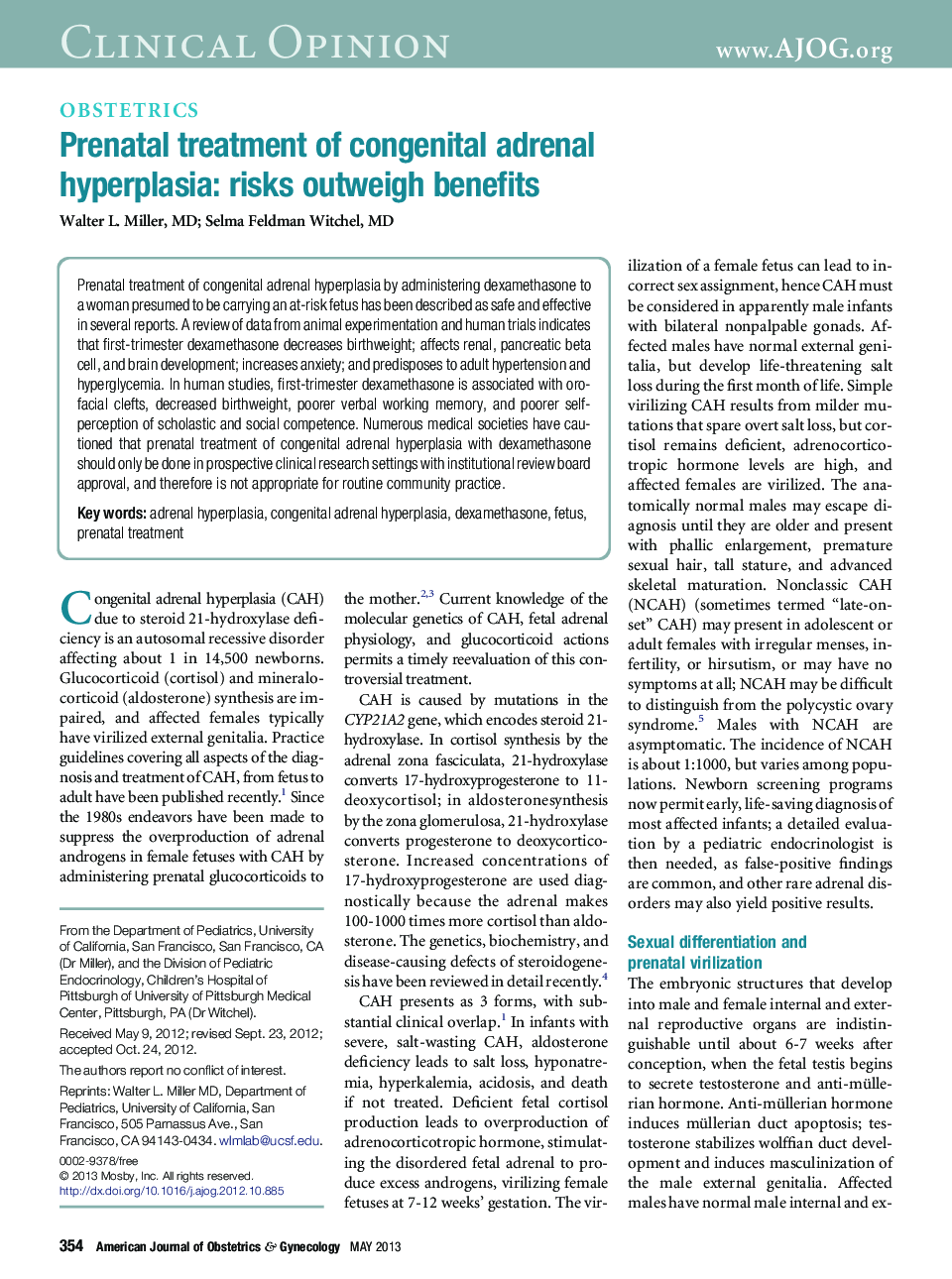| Article ID | Journal | Published Year | Pages | File Type |
|---|---|---|---|---|
| 3433556 | American Journal of Obstetrics and Gynecology | 2013 | 6 Pages |
Prenatal treatment of congenital adrenal hyperplasia by administering dexamethasone to a woman presumed to be carrying an at-risk fetus has been described as safe and effective in several reports. A review of data from animal experimentation and human trials indicates that first-trimester dexamethasone decreases birthweight; affects renal, pancreatic beta cell, and brain development; increases anxiety; and predisposes to adult hypertension and hyperglycemia. In human studies, first-trimester dexamethasone is associated with orofacial clefts, decreased birthweight, poorer verbal working memory, and poorer self-perception of scholastic and social competence. Numerous medical societies have cautioned that prenatal treatment of congenital adrenal hyperplasia with dexamethasone should only be done in prospective clinical research settings with institutional review board approval, and therefore is not appropriate for routine community practice.
